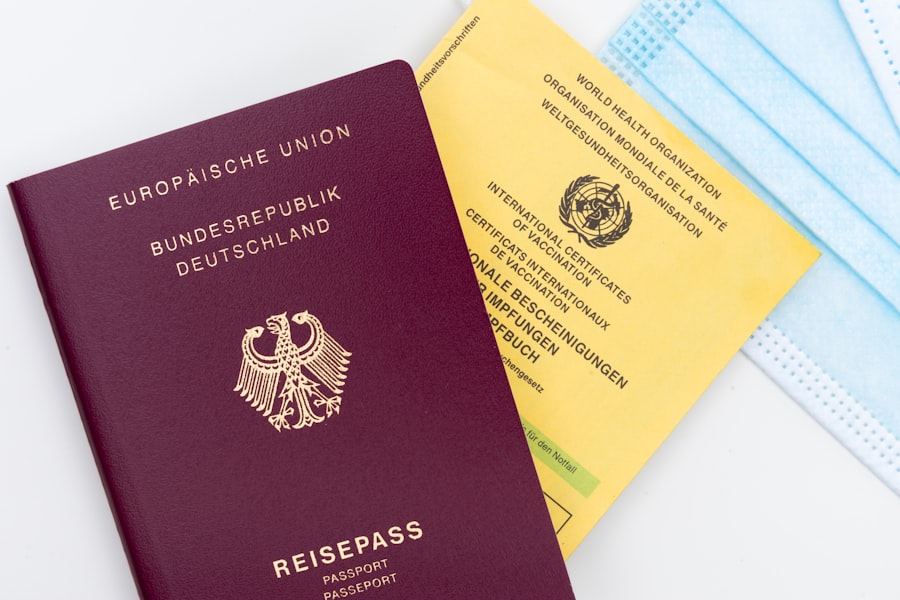The airline ticket pricing system is a complex web of algorithms, market demand, and competitive strategies that can often leave travelers bewildered. At its core, airlines utilize dynamic pricing models, which means that ticket prices fluctuate based on a variety of factors including time of booking, demand, seasonality, and even the day of the week. For instance, a ticket that costs $200 on a Tuesday morning might soar to $300 by Friday evening as the weekend approaches and more travelers seek to book last-minute flights.
This volatility is driven by sophisticated revenue management systems that analyze historical data and current market trends to optimize pricing. Moreover, airlines segment their customers into different classes based on willingness to pay. Business travelers, who often book last minute and have less price sensitivity, are charged higher fares compared to leisure travelers who plan their trips in advance.
This segmentation allows airlines to maximize revenue from each flight. Additionally, ancillary fees for services such as checked baggage, seat selection, and in-flight meals have become a significant part of the pricing structure. These fees can vary widely between airlines and can significantly increase the total cost of travel if not accounted for during the booking process.
Timing Your Purchase for the Best Deals
Timing is a crucial element in securing the best airline ticket prices. Research indicates that the optimal time to purchase a ticket is typically between 21 to 30 days before departure for domestic flights. However, this window can vary based on the destination and season.
For example, flights during peak holiday seasons or major events may require booking several months in advance to avoid inflated prices. Conversely, last-minute deals can sometimes be found for flights that are not fully booked, particularly on less popular routes or during off-peak times. Travelers should also be aware of specific days of the week when prices tend to be lower.
Historically, Tuesdays and Wednesdays have been identified as the best days to find cheaper fares, as airlines often release their sales on Monday evenings, prompting competitors to adjust their prices by Tuesday morning. Additionally, flying on weekdays rather than weekends can lead to significant savings. For instance, a round-trip flight from New York to Los Angeles might be considerably cheaper if booked for a Tuesday departure and a Thursday return rather than a Friday to Sunday itinerary.
Utilizing Rewards Programs and Loyalty Points

Airline rewards programs have become an integral part of the travel experience for frequent flyers. These programs allow travelers to accumulate points or miles based on their flight activity, which can later be redeemed for free flights, upgrades, or other travel-related perks. Each airline has its own loyalty program with varying structures; for example, Delta’s SkyMiles program allows members to earn miles based on the fare paid rather than distance flown, while Southwest Airlines’ Rapid Rewards program offers points based on the price of the ticket purchased.
Maximizing rewards points requires strategic planning. Travelers should consider aligning their flight choices with a single airline or alliance to accumulate points more quickly. For instance, flying exclusively with American Airlines or its partners within the Oneworld alliance can lead to faster accumulation of elite status and benefits such as priority boarding and free checked bags.
Additionally, many credit cards offer sign-up bonuses and additional points for travel-related purchases, which can significantly boost a traveler’s rewards balance. By leveraging these programs effectively, travelers can enjoy substantial savings on future trips.
Exploring Alternative Airports and Routes
When planning air travel, considering alternative airports can lead to significant cost savings and more flexible travel options. Major cities often have multiple airports that serve different airlines and routes. For example, travelers flying to New York City can choose between John F.
Kennedy International Airport (JFK), LaGuardia Airport (LGA), and Newark Liberty International Airport (EWR). While JFK may be the most well-known, flights into Newark or LaGuardia may offer lower fares or more convenient schedules depending on the time of year. In addition to alternative airports, exploring different routes can also yield better deals.
For instance, instead of booking a direct flight from Los Angeles to Miami, travelers might find it cheaper to book a flight with a layover in Dallas or Atlanta. While this may extend travel time, it can result in significant savings. Moreover, some airlines offer “hidden city” ticketing options where travelers book a multi-leg journey but only fly part of it.
However, this practice comes with risks; if an airline discovers that a passenger is not completing their itinerary as booked, they may cancel the remaining segments or penalize the traveler.
Booking Through Discount Airlines and Online Travel Agencies
Discount airlines have revolutionized air travel by offering lower fares compared to traditional carriers. Airlines such as Southwest, Ryanair, and Spirit have built their business models around providing no-frills service at competitive prices. While these airlines may charge for extras like checked baggage and seat selection, savvy travelers can still find great deals by understanding the fee structures and planning accordingly.
For example, booking directly through the airline’s website often yields better prices than third-party sites due to lower service fees. Online travel agencies (OTAs) like Expedia, Kayak, and Skyscanner provide travelers with tools to compare prices across multiple airlines and find the best deals available. These platforms aggregate flight information from various sources, allowing users to filter results based on price, duration, and layover times.
However, it’s essential for travelers to read the fine print when booking through OTAs; some may have restrictions on changes or cancellations that differ from those offered directly by airlines. Additionally, while OTAs can provide competitive pricing, they may not always include ancillary fees in their initial quotes, so it’s crucial to factor those into the overall cost.
Being Flexible with Your Travel Dates

Being flexible with travel dates is a key strategy for finding cheaper flights. Many airlines and travel search engines offer flexible date search options that allow users to view prices across a range of dates surrounding their intended travel period.
Adjusting Your Travel Dates
For instance, if a traveler is looking to fly from Chicago to Miami in early March but is open to adjusting their departure by a few days, they might discover that flying out on a Saturday instead of a Monday could save them hundreds of dollars.
Off-Peak Travel
Moreover, being open to traveling during off-peak seasons can yield substantial savings as well. For example, flights to popular vacation destinations like Hawaii or Europe are often more affordable during shoulder seasons—periods just before or after peak tourist times—when demand is lower.
Benefits of Off-Peak Travel
This not only results in cheaper airfare but also allows travelers to enjoy less crowded attractions and accommodations.
Signing Up for Fare Alerts and Newsletters
In an age where information is readily available at our fingertips, signing up for fare alerts and newsletters can be an invaluable tool for budget-conscious travelers. Many travel websites and airlines offer services that notify subscribers when prices drop for specific routes or destinations they are interested in. For instance, platforms like Google Flights allow users to set alerts for particular routes so they receive notifications when fares change.
Additionally, subscribing to airline newsletters can provide exclusive access to flash sales or promotional offers that are not widely advertised. Airlines often send out emails featuring limited-time discounts or special deals for members of their loyalty programs. By staying informed through these channels, travelers can seize opportunities that may otherwise go unnoticed and secure better deals on their flights.
Negotiating with Airlines for Better Deals
While negotiating with airlines may seem daunting, it is possible for savvy travelers to secure better deals through direct communication with airline representatives. In some cases, if a traveler finds a lower fare on another website or has experienced issues with previous bookings, they can reach out to customer service and request a fare match or an upgrade. Airlines are often willing to accommodate loyal customers or those who express dissatisfaction with their service.
Additionally, during times of economic downturns or when airlines are struggling with low occupancy rates due to external factors like pandemics or natural disasters, there may be more room for negotiation as airlines seek to fill seats. Travelers who approach these conversations with politeness and clarity about their needs are more likely to receive favorable responses from airline representatives. By leveraging these strategies effectively, travelers can enhance their chances of obtaining better deals while navigating the complexities of airline ticket pricing systems.
FAQs
What are airline tickets?
Airline tickets are documents issued by an airline or a travel agency to confirm that an individual has purchased a seat on a flight.
What information is included on an airline ticket?
An airline ticket typically includes the passenger’s name, flight number, date and time of the flight, seat assignment, and the fare paid for the ticket.
How can I purchase airline tickets?
Airline tickets can be purchased directly from the airline’s website, through a travel agency, or through online travel agencies.
What are the different types of airline tickets?
There are several types of airline tickets, including economy class, premium economy, business class, and first class. Each class offers different levels of service and amenities.
Can I change or cancel my airline ticket?
The ability to change or cancel an airline ticket depends on the fare rules associated with the ticket. Some tickets may be non-refundable or may have change fees, while others may be more flexible.
What do I need to bring to the airport with my airline ticket?
When traveling, passengers need to bring a government-issued photo ID, such as a driver’s license or passport, along with their airline ticket to check in for their flight.
Are there any restrictions or requirements for purchasing airline tickets?
Some airlines may have restrictions on purchasing tickets for certain destinations, and passengers may need to meet specific entry requirements for their destination, such as visas or proof of vaccinations.










